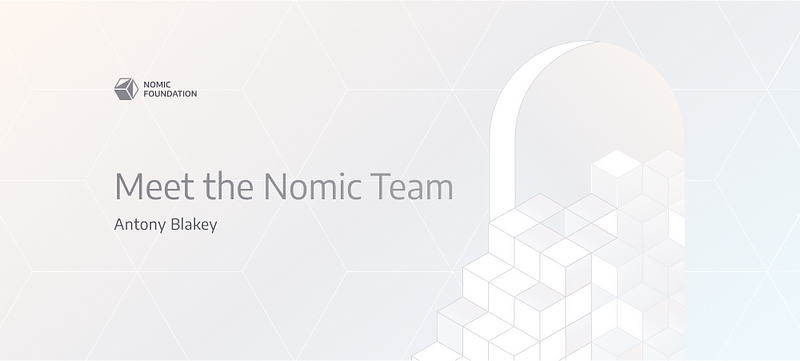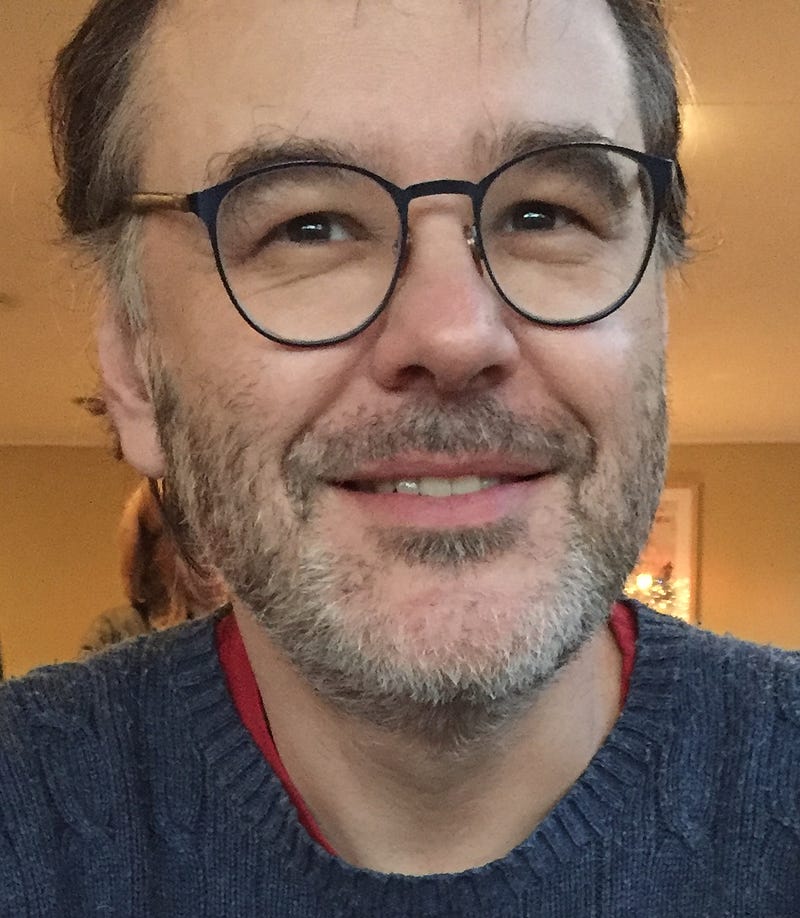Meet the Nomic Team — Antony Blakey, Applied Researcher
We’re excited to shine the spotlight on Antony — a former co-lead on Slang, our compiler-as-a-service project, who is now focused on…

We’re excited to shine the spotlight on Antony — a former co-lead on Slang, our Solidity compiler project, who is now focused on doing Applied Research across all of our projects.

Where are you located? Is that where you are from originally?
I currently work from Melbourne, Australia. Prior to joining Nomic I spent 6 years working in Amsterdam. I am originally from Adelaide, Australia.
Who are you outside of work? What do you like to do in your spare time?
Outside of work I am a goatherd in Afghanistan, or sometimes a dairy cow in rural England.
But seriously … I have many interests. I studied philosophy and music, and both are still a huge part of my life. I love Kant, Nietzsche and Singer. I am a musical theorist and a sometime composer. I have an abiding love of both language e.g. Shakespeare, and linguistics, particularly computational morphotactics, language evolution, and typology. I got into 3D FDM printing at it’s hobbyist-level inception, and I’ve since got into building and using CNC machines for both wood and metal. I owned a small farm with the goal of becoming a permaculturist — but it turns out I’m a thinker more than a real dirt farmer. I do hydroponics, both manual and automated. I have some agricultural robotics projects on the go involving visual servoing and low accuracy mechanical construction, which is a more accurate model of how humans operate. I am into generative art, both visual and aural, particularly in relation to the reification of generative artefacts using e.g. CNC and robotics.
Basically, creating/designing/building/growing stuff.
What were you doing professionally before joining Nomic?
My father was an independent software consultant, so I was able to start professionally in 1977, at age 11, doing maintenance on COBOL systems that would be today called ERP. That was my main source of income for 10 years, although I also did some commercial Prolog, and C, and spent my spare time doing APL, reading SIGPLAN, and building, amongst other things, a compiler in COBOL. If I could go back in time I would tell myself to instead build a Scheme interpreter in COBOL and then use Scheme for everything else.
I was very lucky.
From then until 2001 I built software startups, and did the whole VC dance, which was going gangbusters until the September 11 attacks dried up the VC market in Australia.
I slowed down to recover, and spent some years on a retainer for a company that was using the technology I had developed, whilst also working on a foreign aid project in Mindanao in the Southern Philippines.
I completely stopped work for a few years, and built a CNC workshop to build musical instruments such as violins (my wife is a concert violinist).
I rejoined the software engineering community doing various interesting gigs, including 9 years working with Smalltalk, first as part of the team maintaining and improving VisualWorks Smalltalk, then at a Dutch company working on the energy market day-ahead trading system. I also did some machine learning and designed and built electronic sensors for a large air-quality monitoring project. This all culminated in building a new Smalltalk runtime/compiler in Rust targeting WASM for delivery in the browser. And thus, Nomic.
Why did you decide to join the team?
“Come build a greenfield modular compiler, in Rust, for use in developer tools”. Are you kidding?
In Smalltalk the compiler, IDE, and runtime are all the same thing, so this was right up my alley.
On top of that, working for a non-profit, on technology designed to liberate the powerless from the control of organised capital, was a deal-clincher. We discussed quite a bit of philosophy in the interviews — it was fantastic! The founders, Franco and Pato, completely won me over. They are better founders than I ever was.
What’s your story behind getting into crypto/blockchain/decentralized tech?
At the risk of sounding like a heretic, I am not into crypto at all. And barely into blockchain. However once the role of these technologies in liberating the disempowered and attacking corruption were explained, I was completely onboard.
From a purely technical perspective however, I have a longstanding interest in decentralised systems, and how to make them robust and sustainable. So Ethereum in particular is very attractive.
What are the things that you enjoy and appreciate about working at Nomic?
The people, the culture, the mission, and the challenging work.
Steve Jobs said “great artists ship”, and this is the first organisation I’ve worked for that truly understands both sides of that equation. I think we strike a good balance between doing it right, creating a beautiful architecture, and delivering something valuable.
Which one of our core values resonates with you the most and why? How do you see it being “used” at Nomic?
I am closely aligned, philosophically and politically, with most of Nomic’s core values, so I can’t pick just one. I would however highlight kindness, because it is a very rare value for an organisation to have and even rarer to make explicit. It permeates our entire operation.
What are you excited about when you think about your future at Nomic?
I rarely think about my career in the sense most do, and so I don’t have an answer for this exact question. However I am excited about our roadmap, both short- and long-term, and the work we are doing. I would be very content to stay in the Nomic family forever.
What is your best tip for staying productive and happy when working remotely?
Have a nice place to work, preferably with a view of something appealing. Look after your body — I can recommend the Herman Miller “Embody” chair.
The traditional advice is to get dressed, and ‘go to work’, even when you work from home.
Nomic Foundation is growing, and we’re looking to hire senior engineers and engineering managers that want to work on developer tooling in Ethereum. If this sounds like you, we welcome you to check out our open roles here.

